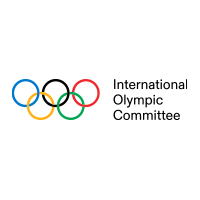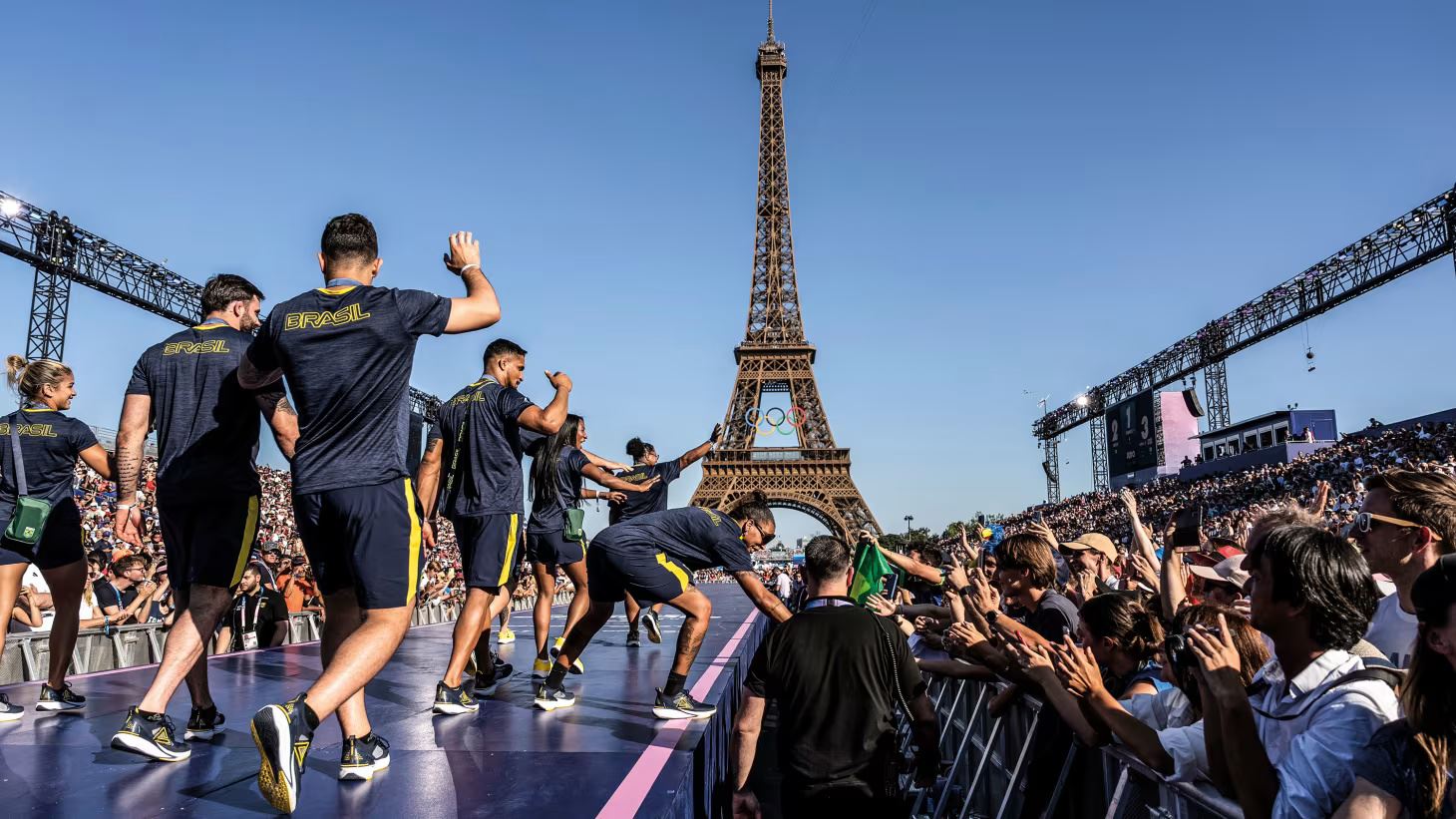09 July 2025 - After the Olympic Agenda reforms pledged to put athletes front and centre, we explore how the past decade has empowered athletes across the Olympic Movement.
Let’s start with a quick history lesson...
In September 1981, at the XI Olympic Congress in Baden-Baden, Germany, the athlete voice was heard for the first time in the Olympic Movement. With 25 Olympians in attendance, six were chosen to deliver speeches on topics important to athletes. Among those speaking to the 469 official delegates was a certain Olympic gold medallist in fencing called Thomas Bach.
Although their speeches were short, they were powerful enough to change the Olympic Movement forever. Just one month later, the IOC Athletes’ Commission (AC) was formed by then-IOC President Juan Antonio Samaranch, with all six athlete speakers appointed among its nine founding members.
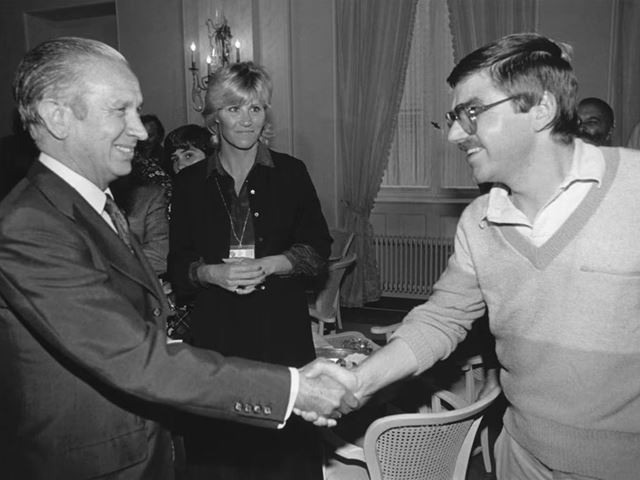
A first meeting followed in May 1982, with the commission becoming an active voice on topics such as anti-doping, gender equality and eligibility rules. Over the next 14 years, membership grew from nine to 14. In 1996, the commission expanded again to 19 members but, more importantly, 10 of these were now chosen by fellow athletes through elections at the Olympic Games.
Possibly the most significant sea change for the athlete voice came in 2000, when athletes entered the IOC membership for the first time, an arrangement that remains in place today. Of the 15 athlete Members, 12 are elected IOC AC members, with the chair also becoming a member of the IOC Executive Board (EB).
From those six speeches 19 years prior, athletes were now much more than their sporting excellence on the field of play – they had taken their place as an integral part of the decision-making processes within the IOC, with a say in the future of the Olympic Movement.
Strengthening athletes’ rights and responsibilities
The role of athletes continued to grow throughout the first decade of the 21st century, but it was December 2014 which saw the next leap forward for athletes: the launch of Olympic Agenda 2020.
Of the 40 recommendations, five were built specifically to promote the athletes’ place at the heart of the Olympic Movement. These included legal changes to the Olympic Charter, more protection for clean athletes, developing the athlete experience at the Olympic Games and strengthening athlete support – both on and off the field of play.
In 2021, this mission was continued by its successor, Olympic Agenda 2020+5, which further pledged to strengthen athletes’ rights and responsibilities. Together, these roadmaps have acted as an important catalyst for the consolidation and advancement of the role of athletes at the centre of the Olympic Movement.
“As an Olympian, the commitment to placing athletes at the heart of the Olympic Movement is profoundly meaningful,” says Jeremy Dodson, who represented Samoa in athletics at the Olympic Games Rio 2016 and now works in the IOC Athletes’ Department. “It signifies a shift towards prioritising the needs, voices and well-being of athletes in every decision, ensuring that athletes are not just participants but integral stakeholders in shaping the future of the Olympic Games and the global sporting community.”
Athletes driving decisions
The journey that started in 1981, with those six historic speeches and the establishment of the IOC AC, has taken athletes from the heart of the sporting action to the centre of the decision-making processes within the IOC.
Not only does the IOC membership include up to 15 athletes – a number on par with presidents of National Olympic Committees (NOCs) and International Federations (IFs) – but athletes are also present on every relevant IOC commission, in addition to the IOC EB.
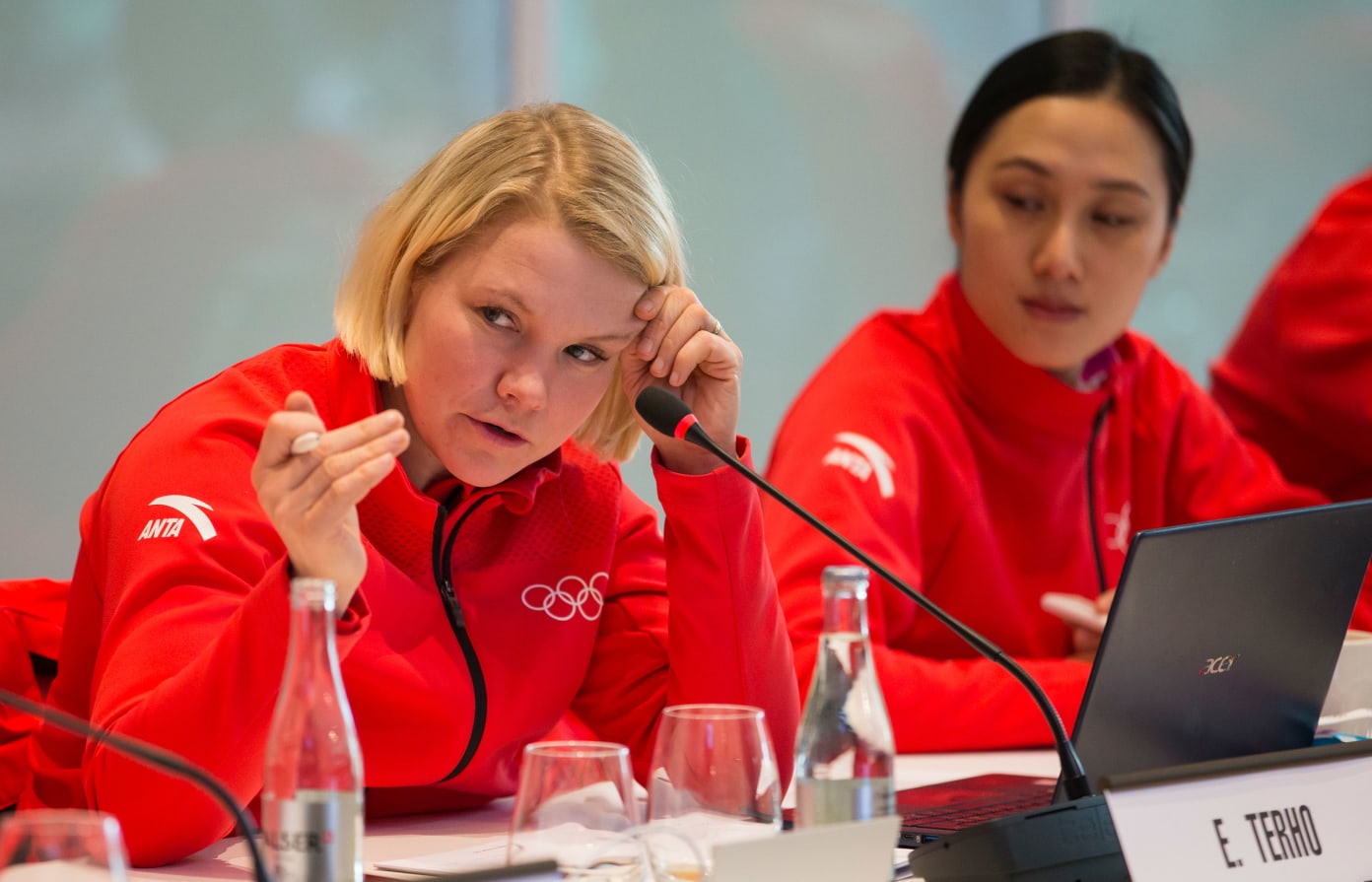
“When there is a topic that might affect athletes, our members are part of these discussions and aware of what’s happening,” explains IOC AC Chair Emma Terho, a five-time Olympian who won two bronze medals as part of Finland’s women’s ice hockey team. “This means the athletes’ voice is heard at the very beginning of the decision-making process. When these initiatives move forward, I bring the athlete perspective to any discussions in the Executive Board. And then, of course, at the IOC Session, we have 15 members making sure the athletes’ voice is heard in front of a bigger audience.”
As part of its leading role for athletes within the Olympic Movement, the IOC AC is at the heart of the global network of athlete representatives, made up of ACs across NOCs and IFs. This network has grown substantially in recent years, with more than 190 of 206 NOCs having now established their own AC.
Everything starts with providing the best possible experience for athletes – that is the core from which we build everything else. It’s super important for us to work with the global network because the challenges athletes face are different depending on where they are from. That means spreading out to the local level, making sure that we give athletes a say, not only in their everyday work but in how the Olympic Movement is shaped, first in their local context and then obviously at the Olympic Games.
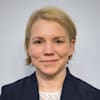
Emma Terho IOC Athlete Commission Chair
Keeping athletes connected to the IOC and the Olympic Movement is key in creating a strong athlete network. Whether it’s the IOC President engaging with athletes at the International Athletes’ Forum or the Olympic Games, or IOC AC members bringing their expertise to the local level, it’s these interactions that foster a more powerful athlete voice.
“It's a game-changer getting to interact with them, share our experiences, and for them to share their experiences with us,” explains Kenya NOC AC member Wilkistar Nyiro, who engaged with Terho and IOC AC member Humphrey Kayange, an Olympian in rugby sevens, at the most recent ANOCA (Association of African NOCs) Athletes’ Forum. “This is a good move by the IOC because now we are relating to our leaders and they're also able to hear from us directly.”
A first-of-its-kind athletes’ department
The growth and increased synergy of the global athlete network has been further galvanised by one of the key outcomes of Olympic Agenda 2020+5 – the creation of an Athletes’ Department within the IOC.
Established in May 2021, the department is led by Kaveh Mehrabi, Olympian in badminton, with a further eight Olympians and a former elite-level athlete among its 22 staff members. Dedicated specifically to working for athletes, the department consists of four units: support and partnerships, athlete and Olympian relations, community engagement, and communications and digital activation.
“The IOC Athletes’ Department is a group of individuals passionate about supporting the sporting community, personally and professionally,” says Dodson, who brings his experience as an Olympian to the role of Athlete & Olympian Relations Project Manager.
The department is a unique collection of athletic viewpoints, working closely with the IOC AC to ensure that the athletes’ perspective is represented in IOC decisions.

Jeremy Dodson Olympian, Samoa
Close contact with the IOC AC and the global athlete network is crucial to the department’s aims of increasing athlete engagement, strengthening ACs and providing a wealth of support initiatives to athletes around the world.
“We create programmes and resources that help athletes in all phases of their careers, from development ages onto the transition out of sporting careers,” Dodson explains. “Although the Olympic Games are the highlight of an athletic career, we work all year round to ensure the athletes are successful in every area of their life.”
Rodrigo Garza, Olympic silver medallist for Spain in men’s hockey at Beijing 2008 and member of the athlete partnerships team, highlights the benefits of having Olympians, who have lived the athlete journey from the first steps in their sport to retirement, at the forefront of the department’s work.
We know what it feels like to face uncertainty after competing. It builds trust, too. Athletes feel more comfortable knowing that the support they’re getting comes from someone who’s walked the same path.
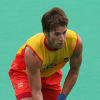
Rodrigo Garza Olympic silver medallist, Spain
By athletes, for athletes
The presence of athletes at the heart of the IOC administration and the growth of the global network of athlete representatives are key legacies of the past decade, but how have the lives of athletes actually changed?
Under Olympic Agenda 2020 Recommendation 18, which aimed to strengthen support to athletes, came one key goal: “Offer a one-stop-shop for athletes to access all relevant content on important topics related to their career on and off the field of play.”
Enter Athlete365.
Since launching in 2017, Athlete365 has become the world’s largest community of athletes, with more than 200,000 members, including Olympians, Paralympians, elite athletes and entourage members. Driven by the simple mission of making athletes’ lives better, the platform provides exclusive offers, expert advice and tailored content to support athletes at every stage of their journey – delivered in six languages.
As well as a website, app and social channels accessible to all athletes across different regions, Athlete365 also offers physical spaces for learning and engagement at the Olympic Games and other events.
So, what do the athletes say?
“Athlete365 has been very useful during my Olympic journey,” states Alpine skier Márton Kékesi, two-time Olympian for Hungary.
It deepened my understanding of the Olympic Movement and made the Games more engaging by offering team-building programmes at the Athlete365 House during our rest days. I appreciate being part of a community that supports athletes between Games, offering growth opportunities.

Márton Kékesi Olympian, Hungary
Ghailene Khattali competed for Tunisia in canoe sprint at Tokyo 2020 and Paris 2024 and says the platform has been an asset as he pursues a dual career: “Athlete365 represents a window for me to find all the programmes that can help me as an athlete or as an entrepreneur.”
One of the key pillars of the Athlete365 offering is its learning platform, with courses designed to help athletes and their entourages gain new skills and knowledge across a wide array of topics. Athlete365 Learning also collaborates with Worldwide Olympic Partners (TOPs) such as Alibaba, Airbnb, Allianz, Coca Cola, Deloitte, P&G, Samsung
and Visa to bring their expertise to athletes.
In 2024, nearly 17,000 athletes took more than 25,000 courses on Athlete365 Learning, a respective 46 per cent and 31 per cent rise on the previous year. “We have expanded our resources beyond career support to include mental health, safeguarding and personal brand development, continuously adapting to athletes’ evolving needs,” explains Maria Ntanou, Athlete & Olympian Communications Manager – and three-time Winter Olympian herself.
As a free tool available to all who sign up, Athlete365 Learning is accessible to any athlete – wherever they are in their career. Romio Recardo Goliath, vice-chair of the Namibia AC and LA28 hopeful, says: “Athlete365 Learning has been a valuable resource in my wrestling journey, providing me with useful information, tips and guidance to improve my performance and well-being.”
Giving athletes a helping hand
For athletes who sign up to Athlete365, there is also a range of tangible support available – including the Airbnb Athlete Travel Grant and Airbnb500, which have reached thousands of athletes since their launch in 2020.
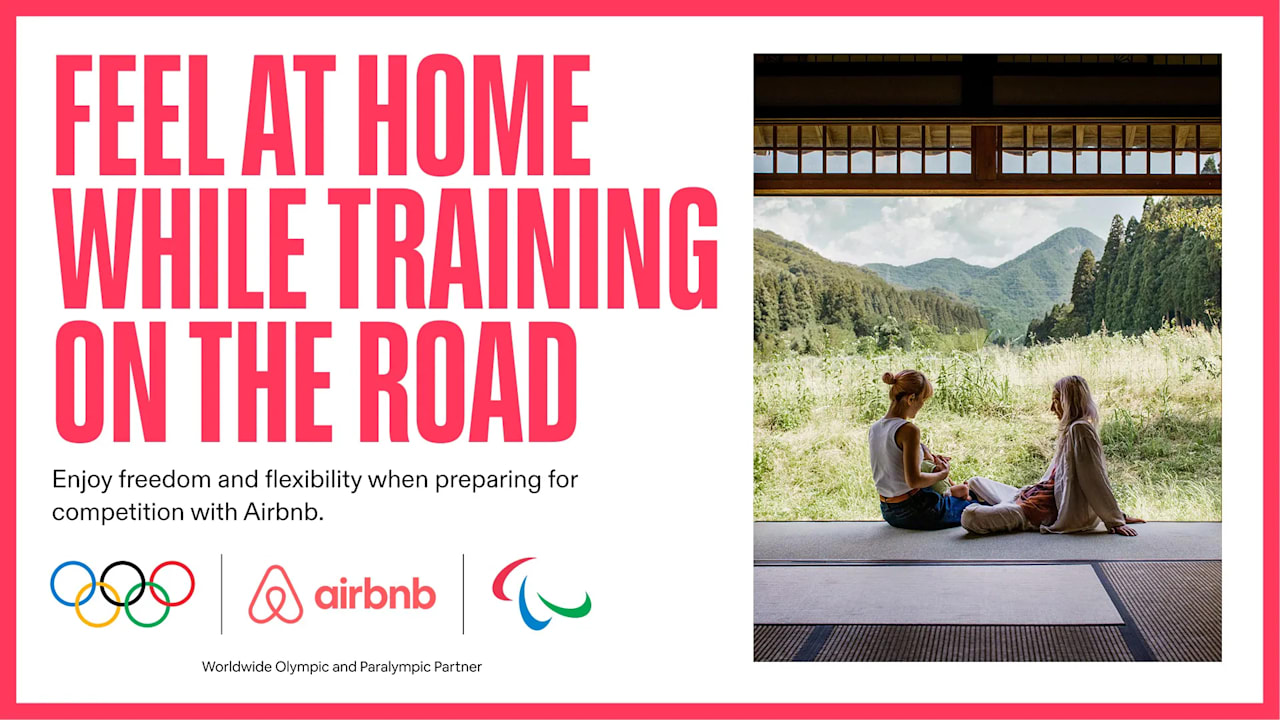
The road to the Olympic Games can be a long one, with training camps and competitions across the globe sometimes placing financial strain on athletes. To ease this pressure, the Airbnb Athlete Travel Grant provides successful applicants with up to USD 2,000 to spend on Airbnb accommodation during competition or training trips. As of December 2024, a total of 3,000 grants had distributed USD 4 million of financial support to Olympic and Paralympic hopefuls – sometimes making all the difference in their quest for the Games.
“It was essential for my Olympic qualification, especially mentally speaking,” explains wrestler Giullia Penalber, who represented Brazil at Paris 2024. “I was able to pay for accommodation for my coach and some team members to accompany me on training camps that I didn't previously have the support for. It gave me more peace of mind by allowing me to train and have moments of rest with the people I needed on the journey.”
Those moments of rest are essential, particularly after the Games, which represent the culmination of a lifetime of hard work and sacrifice. This is where the Airbnb500 comes in.
Available to all Olympians and Paralympians competing at every Games since Tokyo 2020, the Airbnb500 gives athletes USD 500 in Airbnb credits to unwind afterwards or pursue their next sporting goal. More than 13,000 Olympians and 5,000 Paralympians have taken up the offer to date, amounting to more than USD 9 million in financial support.
After Paris 2024, my fiancé and I travelled to Italy for a much-needed rest and recharge. This gave us the perfect opportunity to unwind and reflect on the whirlwind of competing at my third Games. It was a beautiful way to reset physically and mentally, helping me return to school with fresh energy and focus.
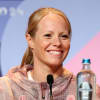
Jacqueline Simoneau Olympian, Canada
Navigating the transition
Direct support for athletes doesn’t stop there. Since its inception, a key priority for Athlete365 has been guiding athletes through possibly the toughest part of their careers: the transition away from sport. After years of working towards a big goal – often the Olympic or Paralympic Games – the end of an athletic career can be a challenging time.
The Athlete365 Career+ programme, initially set up in 2005, has supported more than 60,000 athletes through this transition, with expert advice, skills building, and employment and networking opportunities.
This multi-faceted approach is spearheaded by workshops, conducted in collaboration with NOCs and IFs, with athletes learning how their existing skills can transfer to the working world, developing self-understanding and assessing their options after retirement. More than 15,000 athletes across five continents have attended an Athlete365 Career+ workshop to date, and in 2024 workshops were delivered in eight languages.
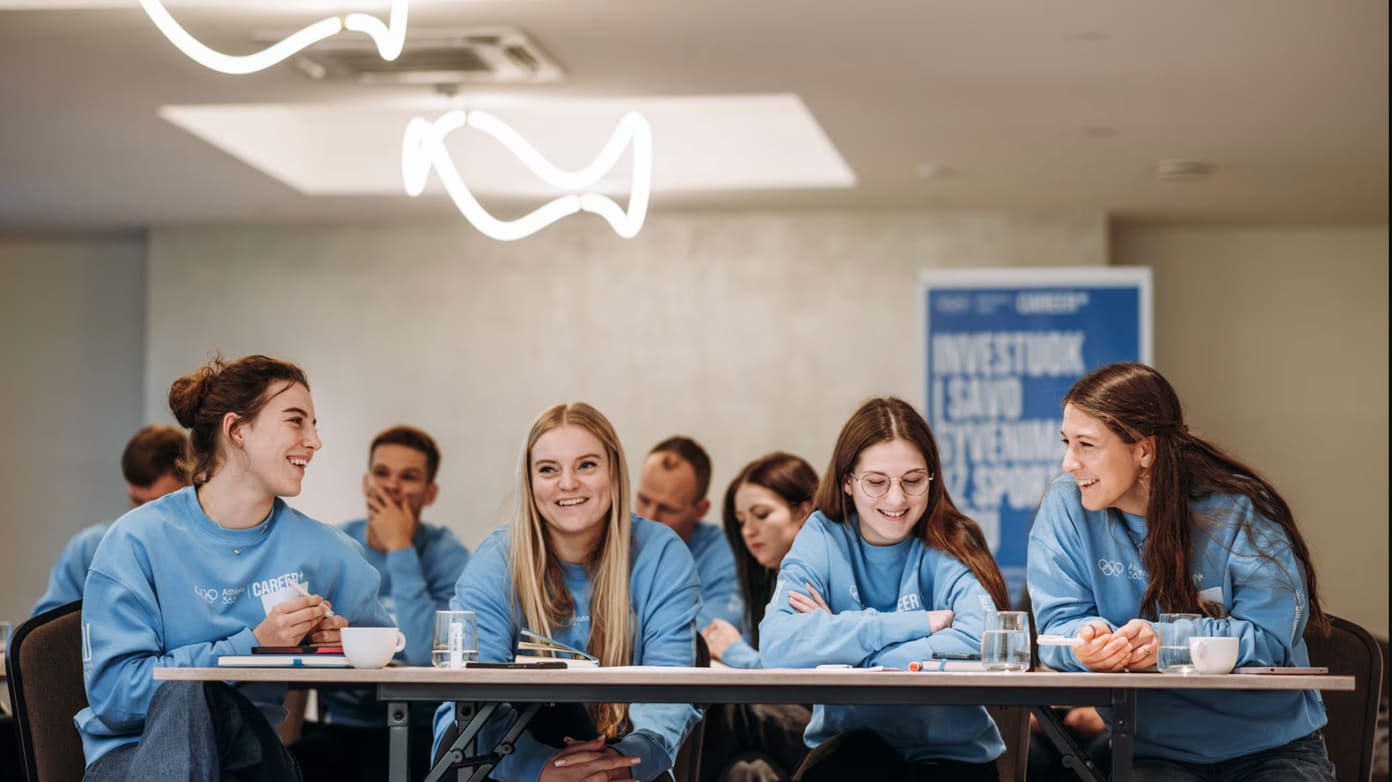
The workshops are led by IOC-trained educators like Maria Barakat of the Jordan Olympic Committee. “It’s incredibly rewarding to watch athletes not only learn but challenge their thinking,” she says. “The process of self-exploration builds their confidence, connects their strengths in sport with career opportunities and makes them realise that their potential extends far beyond the field of play.”
For athletes seeking more individualised career support, the Athlete365 Mentoring programme offers one-on-one sessions with experts from across the Olympic Movement, including senior figures working for the global brands that make up the IOC’s TOP Partners, and the IOC itself.
Now in its third cohort, the programme has given more than 200 athletes the chance to benefit from the expertise of a mentor as well as networking opportunities.
When you’re thinking, ‘What am I going to do after I retire?’, it can be really scary. To be able to meet other athletes going through the same thing and get practical advice on what to do and how to prepare – it was really a great opportunity.

Bernardo Oliveira Olympian, Brazil
Opportunities for growth
Having this support is crucial, but athletes also need to be able to put their new skills and knowledge into action. Under the Olympic Agenda reforms, a concerted effort has been made to increase athlete employment opportunities, including positions within the IOC, at the Olympic Games and through TOP Partner programmes.
At Paris 2024, 41 Olympians and six Paralympians were employed by Olympic Broadcasting Services (OBS) thanks to the Olympic Commentary Training and the Broadcast Training Programme.
Providing world-class training across a number of roles, these OBS initiatives turn athletes into professional broadcasters and offer successful participants the chance to sign Games-time contracts. Mark Hawkins, who represented Great Britain in handball at London 2012 and commentated for OBS in Paris, appreciated the opportunity to contribute to the Games in a new way – and the boost to his career. “It's amazing to be involved in the Olympics at any level. It's a massive potential springboard,” he says.
Athletes with a mind for business have a springboard of their own in the Athlete365 Business Accelerator programme. Designed to help athletes launch their own businesses, the initiative matches them with local mentors and industry experts to guide them through the process. In 2024, Alibaba became a supporter of the programme, bringing its e-commerce expertise to athletes and their businesses.
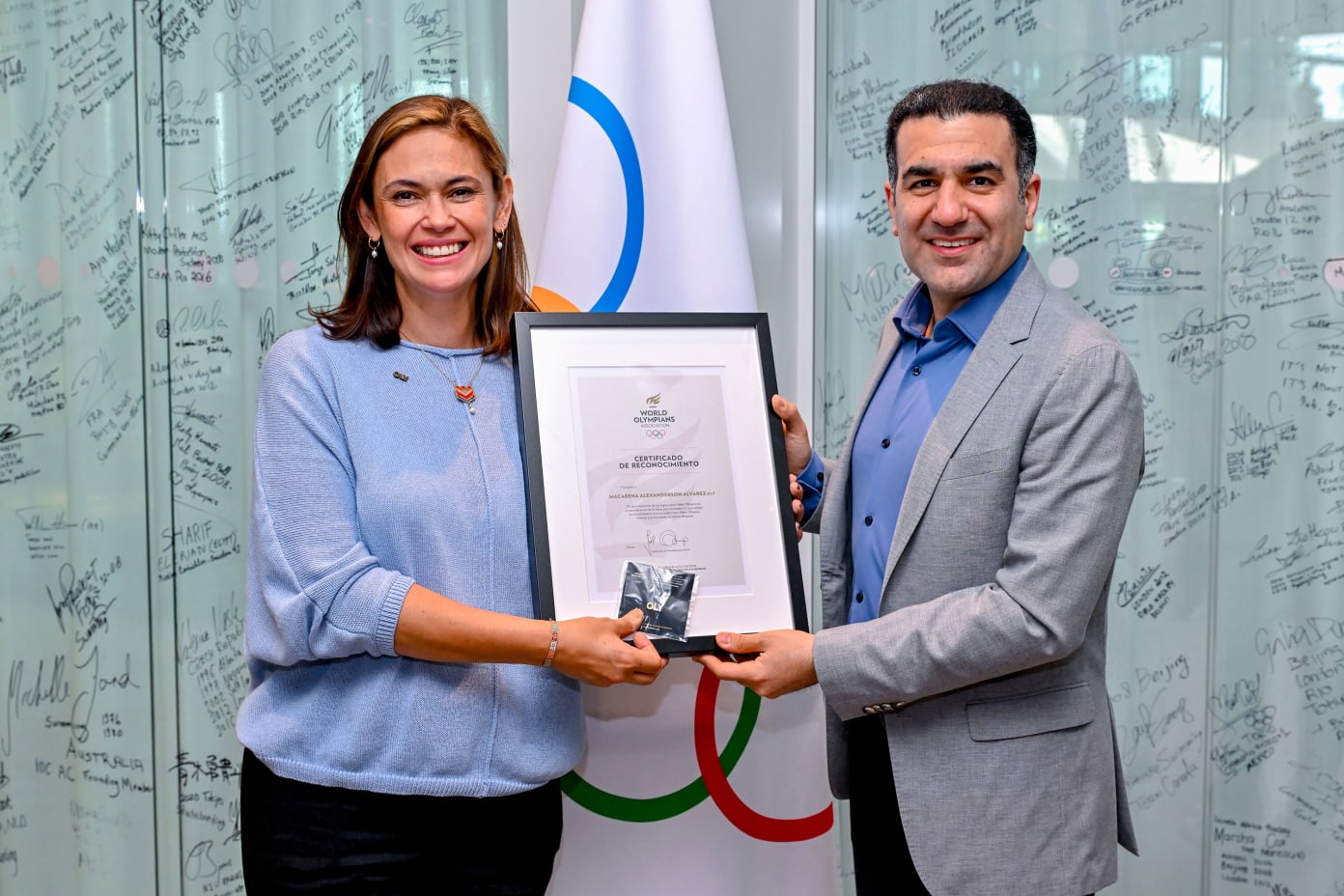
More than 3,700 athletes have participated in at least one phase of the Business Accelerator, with 63 Olympians completing the entire programme to date – including diver Macarena Alexanderson, whose business aims to transform physical education for children in Mexico. “As athletes, we're often taught to not do things without preparing, and I think that is even more true in business,” she explains. “The Business Accelerator programme really helped to get my business started.”
And for those athletes just getting going in their post-sporting career, the IOC offers various internship opportunities for Olympians to gain invaluable experience – right at the heart of the Olympic Movement.
“It’s truly a dream come true,” says Italian rower and Athletes’ Department intern Valentina Iseppi, who competed in the women’s quadruple sculls at Tokyo 2020.
The opportunity to give back to sport and the Olympic community, after everything it’s given me, is one of the most fulfilling opportunities I've ever had.
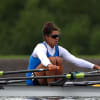
Valentina Iseppi Olympian, Italy
A bright future
As President Bach stepped down from his role, leaving behind a legacy of increased representation, support and opportunities for athletes, the question now is: what does the future hold?
Well, in IOC President Kirsty Coventry, athletes have another Olympic champion and former IOC AC Chair to build on the progress made. In her manifesto, Coventry has “committed to serving athletes by maintaining open dialogue and ensuring their needs are prioritised”.
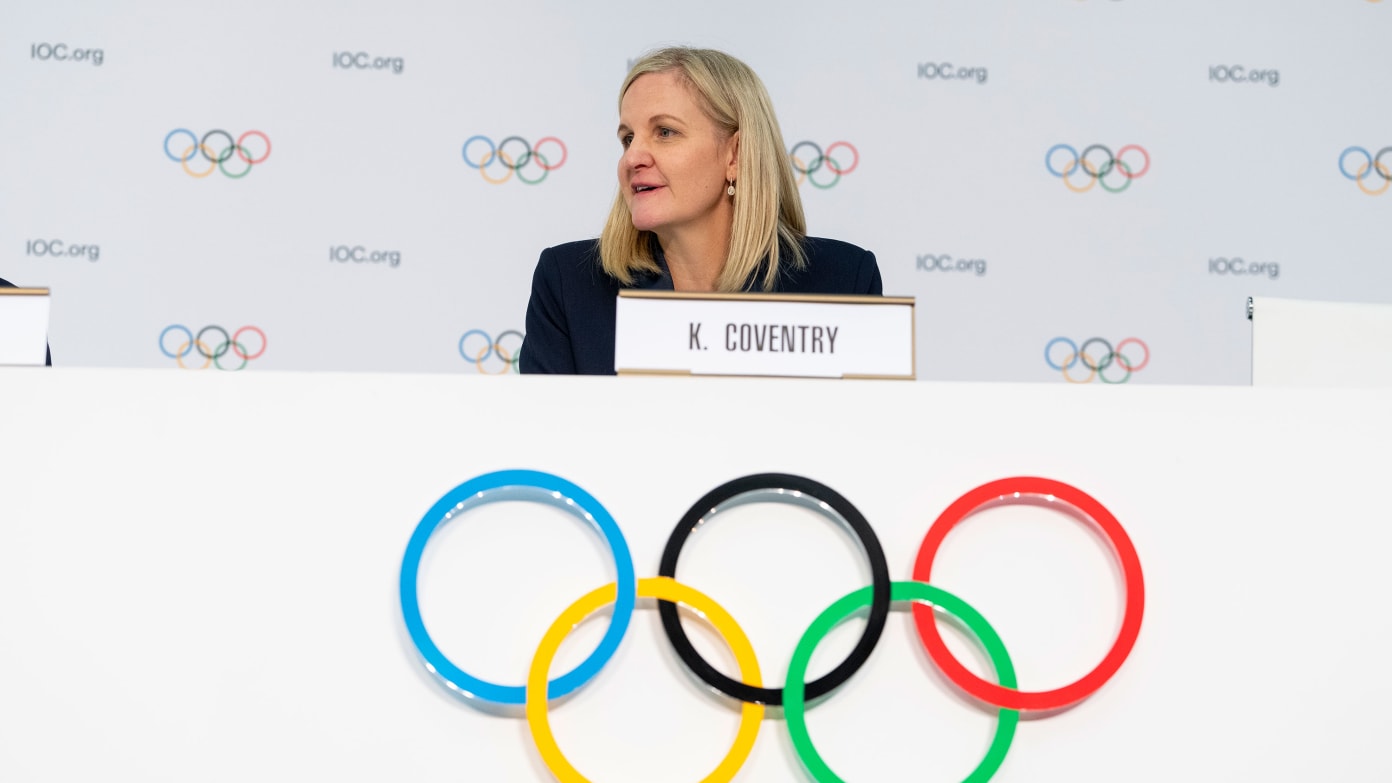
How will she do this?
“I will expand existing programmes and identify new opportunities for athletes to benefit from our Olympic Partner Programme, Media Rights Holders, Olympic Solidarity and further develop athlete career programmes.”
After a game-changing decade under President Bach, all signs point towards even more exciting times for athletes in the coming years.
